
City of Glendale
Example hero paragraph text.

City of Glendale
2018 – 2019
Incorporated in 1910, the City of Glendale was initially a small, farming town that grew into a prosperous city with a bustling downtown. Known as “Arizona’s Antique Capital” due to the large number of antique shops in its downtown corridor, Glendale’s past remains visible with many historic buildings and popular public events. Today, the city is home to many notable landmarks such as the State Farm football stadium, Gilar River Arena and historic Manistee Ranch. The combination of history, modern attractions and events, and nature has contributed to Glendale becoming a thriving city that is attractive to both residents and visitors alike.
Glendale faces several social, environmental and economic challenges; some that are common to cities across Arizona and others that are as unique as the city itself. These include water management and conservation, insufficient budgets, and sustainability impacts of city facilities. Partnering with Project Cities allows ASU students and the city of Glendale to co-create solutions that are tailored to the city while providing students hands-on experience with communities that prepare them for future careers.
City of Glendale projects
Recycling program enhancement plan
Taught by Albert “Al” Brown, students examined national standards as well as action taken by peer communities; students then developed an SOP guide, and a list of best practices and recommendations for the City of Glendale.
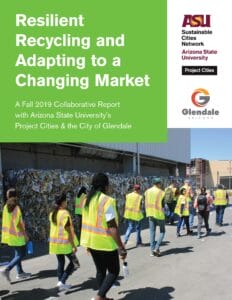
Resilient Recycling and Adapting to a Changing Market
Above-ground chemical storage tanks
Taught by Albert “Al” Brown, students examined national standards as well as action taken by peer communities; students then developed an SOP guide, and a list of best practices and recommendations for the city of Glendale.
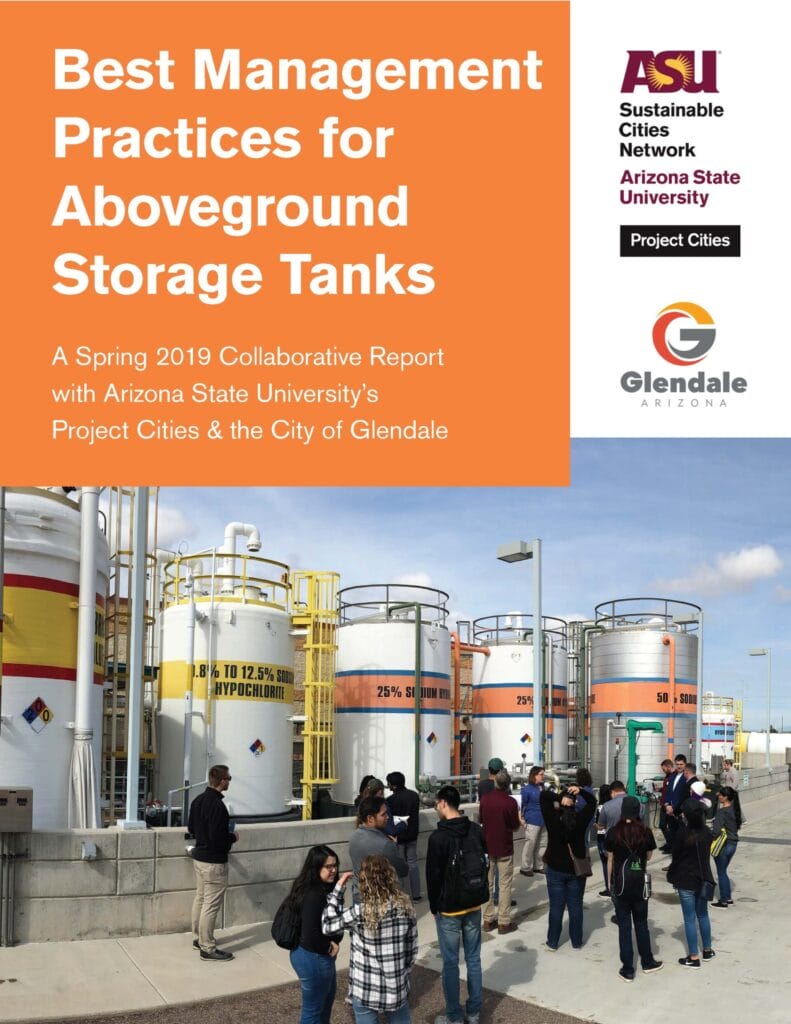
Best Management Practices for Aboveground Storage Tanks
Fleet electrification transition planning
Taught by Deborah Salon, public planning students investigated a variety of research questions and compiled recommendations and best practices to assist the City in transitioning to an electric vehicle fleet
Taught by with Nathan Parker, a group of honors students conducted an in-depth SWOT analysis of a variety of charging station options, and provided recommendations on the best products for various needs.
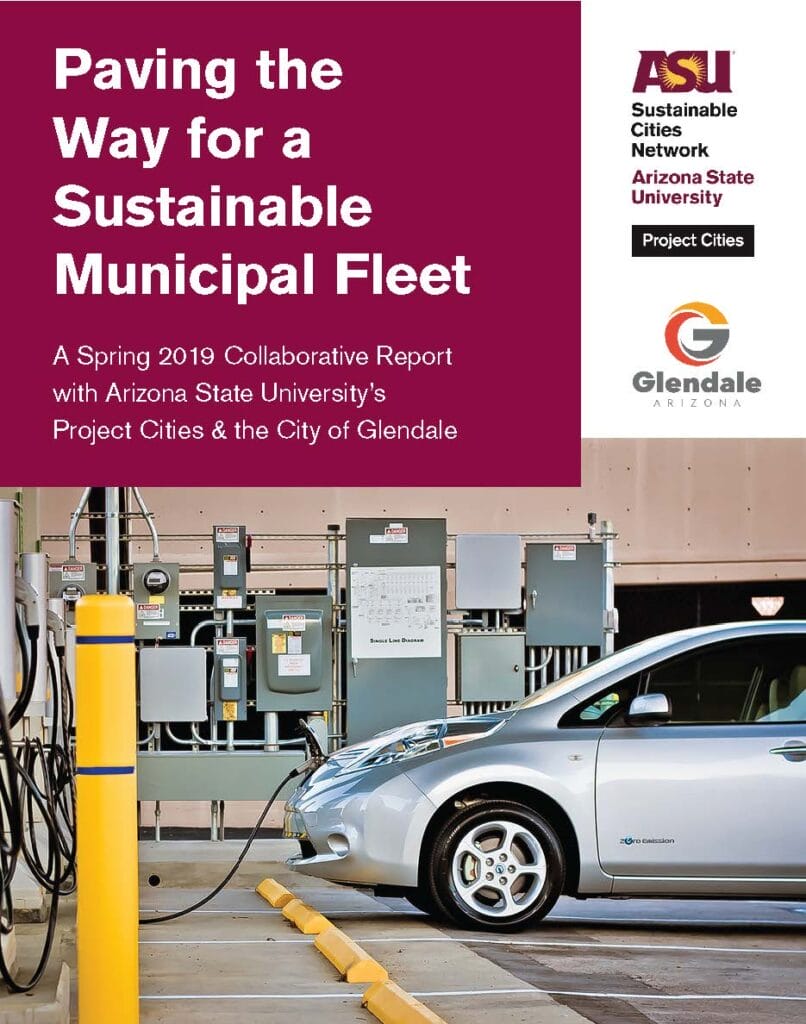
Paving the Way for a Sustainable Municipal Fleet
Sustainability options for Glendale facilities master plan
Taught by Nicole Darnall, students developed recommendations for sustainable facilities management, particularly for the Glendale Field Operations Campus.
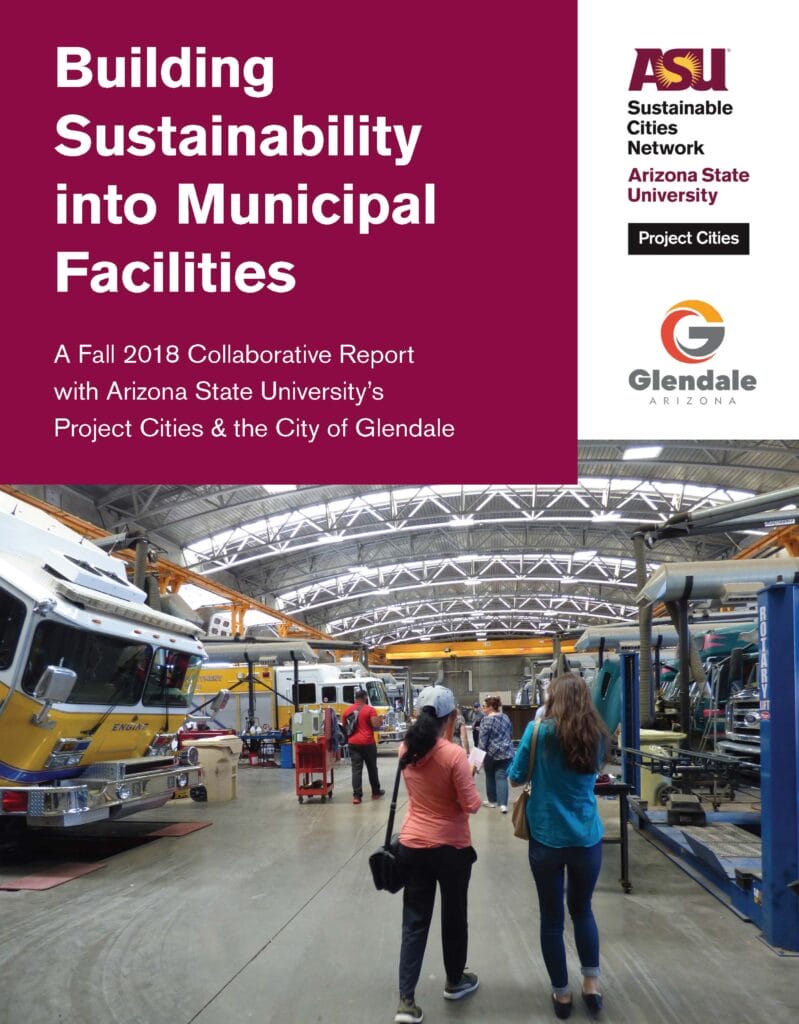
Building Sustainability into Municipal Facilities
Building Sustainability into Municipal Facilities
Digital media policy and strategy
Accordion content headline
Taught by Stephen Carradini, students developed best practices and recommendations based on research and case studies from other organizations’ social media management practices.
Taught by Stephen Carradini, students developed a social media plan/policy document, and compiled best practices for the a new Social Media Manager position.
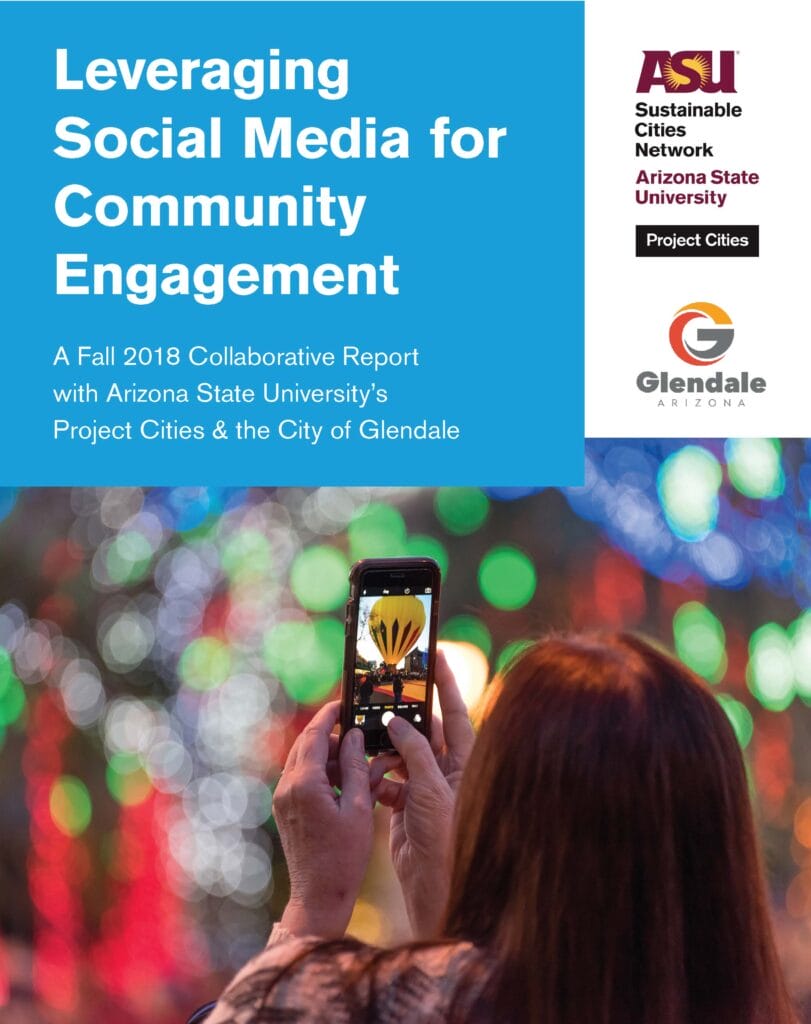
Leveraging Social Media for Community Engagement
Multi-generation community engagement
Taught by Katherine Clemens and Laura Tan, students developed plans for creating a youth advisory council in the community, including engagement with local educational organizations.
Taught by Malcolm Goggin, students examined a wide variety of strategies to engage with multiple constituencies in the community.
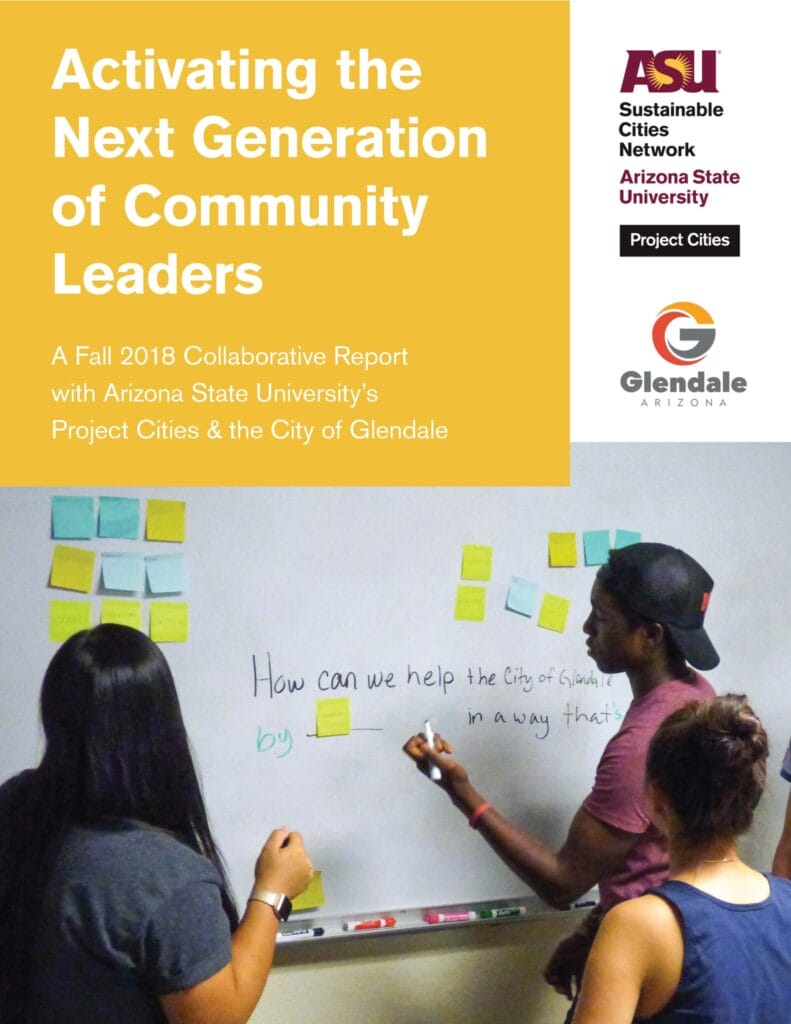
Activating the Next Generation of Community Leaders
Glendale in the news
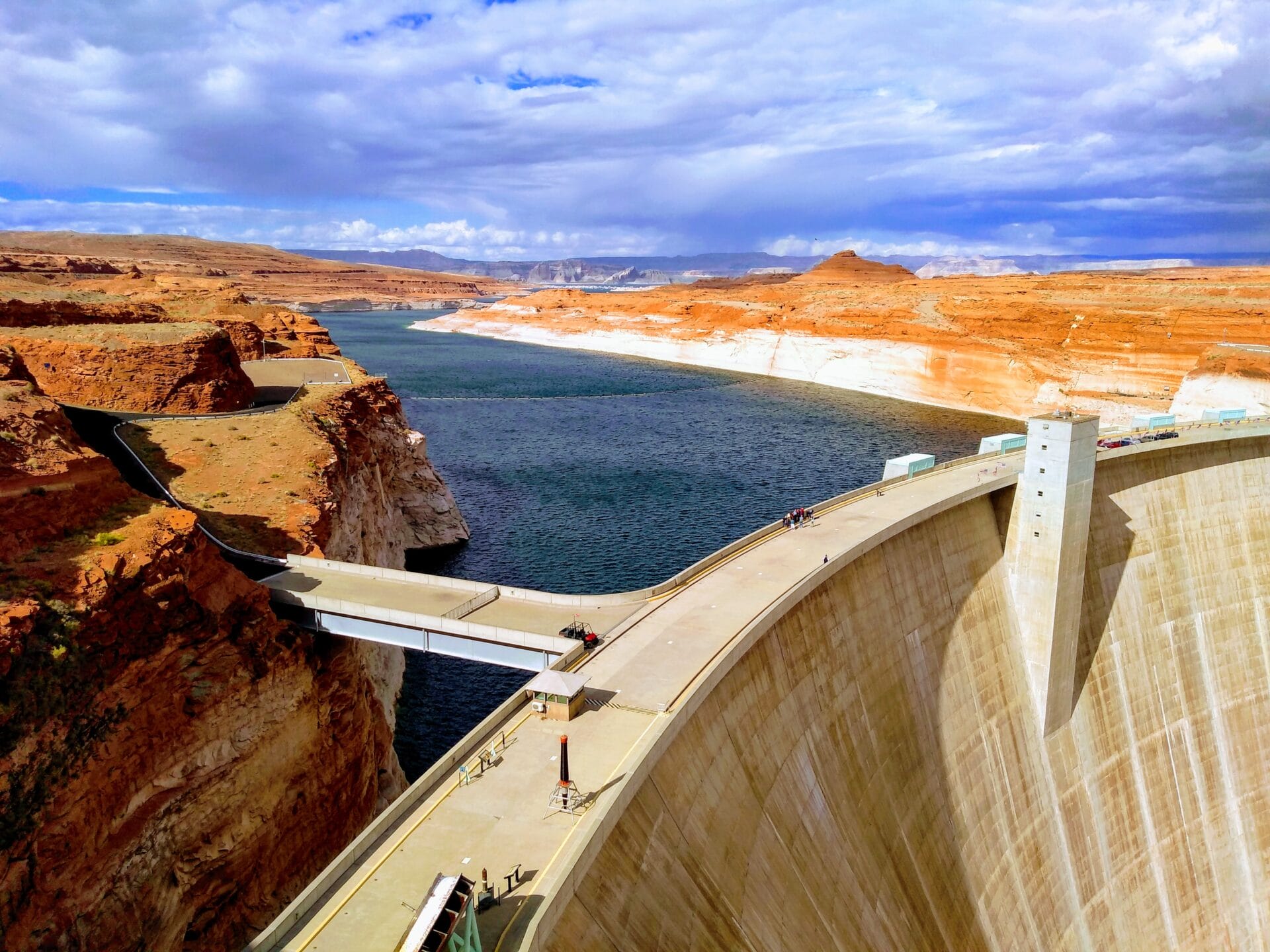
ASU’s Project Cities program connects students with cities for a more sustainable state
The State Press,
February 11, 2019
Project Cities recognizes current community partner, Glendale AZ, while looking forward to new partnerships for 2019-20 academic year.
Related research projects
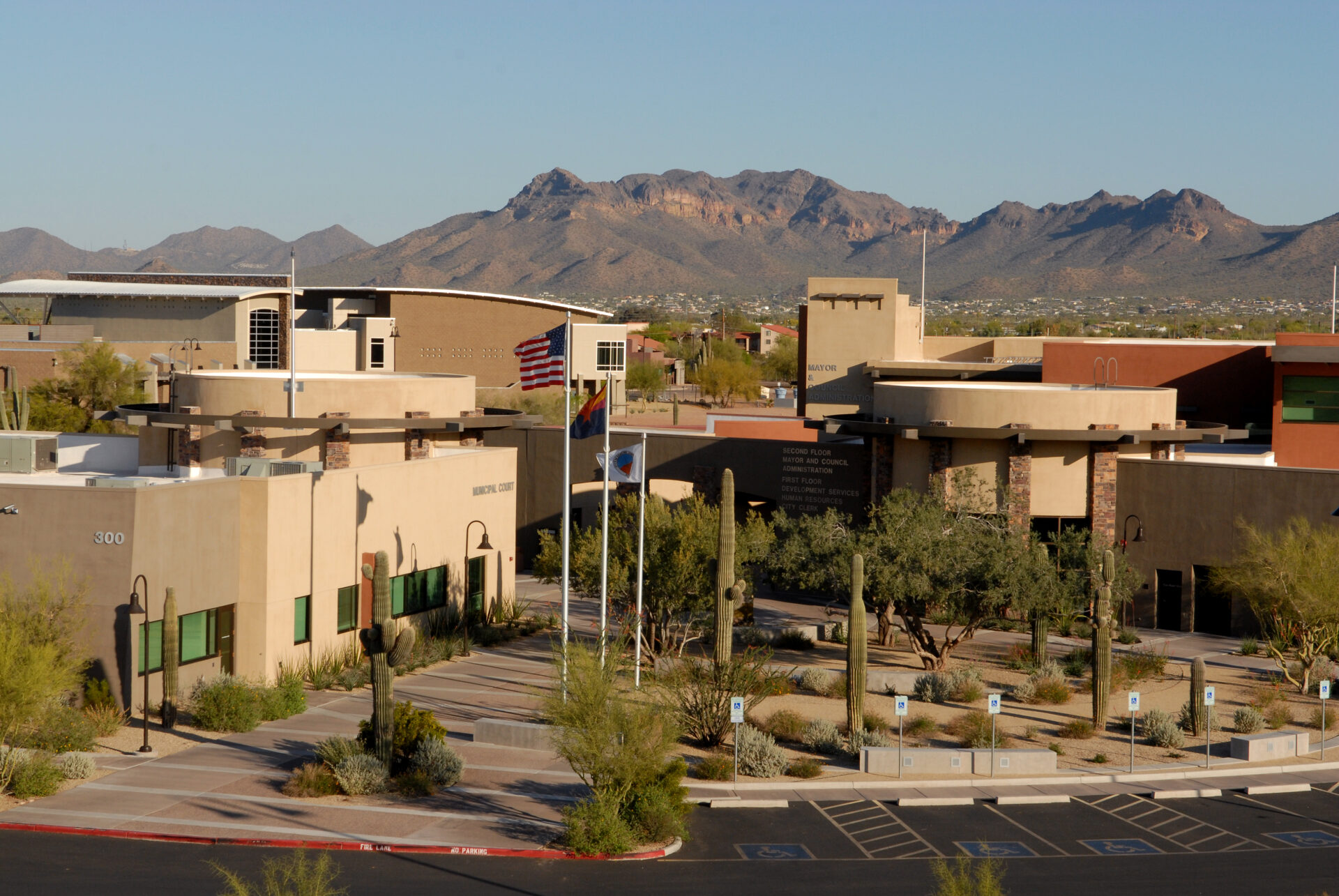
City of Apache Junction
Nestled at the foot of the Superstition Mountains, Apache Junction is strategically positioned as the eastern gateway into the Greater Phoenix metro area (Valley of the Sun) and the western entry to the Tonto National Forest’s recreation venues.

Town of Gilbert
Ranked as the 2nd Safest City and 22nd Best Place to Live in the country, the Town of Gilbert is currently home to over 250,000 residents. Since its incorporation in 1920, the Town has grown into one of the fastest growing communities and the largest Town in the United States. With roots as one of Arizona’s agricultural communities, the Town is now a thriving and economically-diverse suburban community with a nationally ranked K-12 education system and a growing STEM industry.
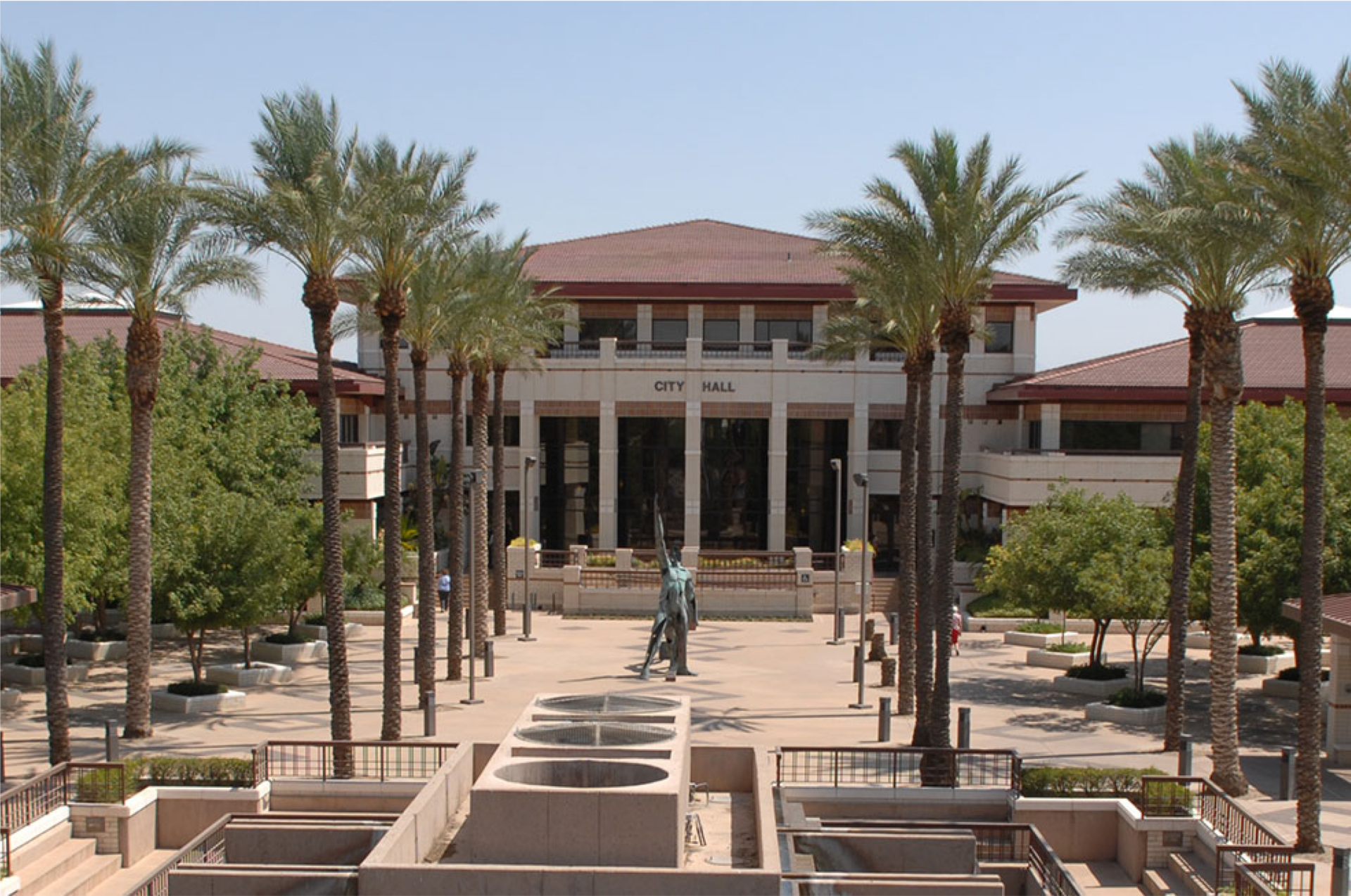
City of Peoria
Ranked as the No. 1 place to live in Arizona by Money Magazine and the only Arizona city named as one of the best cities in the U.S. by Yahoo! Finance, the city of Peoria is currently home to more than 171,000 residents. The city enjoys a reputation as a family-oriented, active community with an exceptional quality of life.